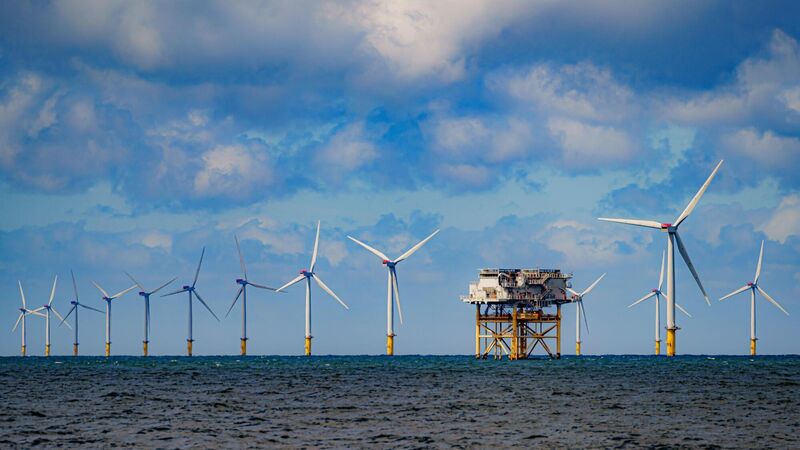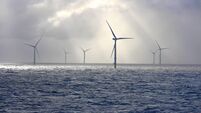Letters to the Editor: Floating wind energy is the future for Ireland

'[W]e can build an offshore wind energy industry which will decarbonise our economy, protect consumers from volatile fossil fuel prices, and revitalise coastal communities.' Picture: Ben Birchall/PA
Floating wind power is Ireland’s long-term energy future. The bulk of the at least 37 GW of electricity to come from offshore windfarms by 2050 will be from floating projects. They will be the cornerstone of Irish energy independence.
Costs for floating wind energy are falling and, as shown in recent French auction results, are far lower than the figures contained in the unpublished analysis referred in your edition of June 7 which appears unsupported by evidence. It is time for Ireland to build on this momentum.











